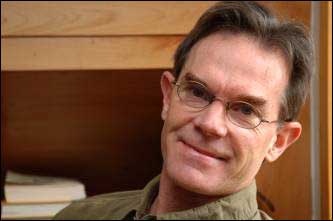
Between the presidential candidate chatter about health care and Michael Moore’s movie Sicko, Dutton enlightens readers about the plight of health care in America and offers suggestions to make it better.
Dutton, an associate professor in NAU’s History Department, offers a comparative history of health care in the United States and France, and explains why the World Health Organization rated France first and America 37th in providing health care.
“I am struck by how many ideals the French and American people share about health care, how similar their health-care systems were a hundred years ago, but how different they are today,” Dutton said. “By writing a comparative history that brings the reader right up to the present day, I hope to make a contribution to the U.S. health-care reform debate.”
Dutton foresees an America that will suffer unless it reforms its health-care system.
“We need to figure out what works and what doesn’t in all countries and create one that works for America,” Dutton said. “As a growing number of U.S. workers seek, first and foremost, not jobs where their skills pay them higher wages, but jobs that provide them with good health insurance, then productivity, and eventually economic growth and the U.S. standard of living will fall.”
The book highlights the similarities between the America and France, including their “distaste for socialized medicine” that restricts patient choice.
“The French insist on autonomous private practitioners rather than a British-style national health service, which the French dismiss as socialized medicine,” Dutton explained. “In contrast to Canada and Britain, there are no waiting lists for elective procedures and patients need not seek pre-authorizations in France.”
Nor do doctors in France face the high expenses of non-medical personnel because a standardized electronic system is set up for physician reimbursement.
“Their doctor’s freedoms are protected in ways that would make their managed-care-repressed U.S. counterparts envious,” Dutton remarked.
Dutton gives Moore’s movie, Sicko, a mixed review.
“I found the first 40 minutes very moving, especially its coverage of Americans who thought they were well insured, only to learn that their health security rested on the financial calculations of insurers,” Dutton said. “Unfortunately, Moore’s comparisons with health care in Britain, Canada, Cuba and France are simplistic. They have vastly different sorts of health-care systems, each with its own advantages and disadvantages. From watching Sicko, you’d never know that.”
Differential Diagnoses, published by Cornell University Press, is due out in September. Support to write it came from the National Endowment for the Humanities, the Agency for Healthcare Research and Quality and from a fellowship at the Woodrow Wilson Center in Washington, D.C., that provided Dutton the time to write a first draft.



